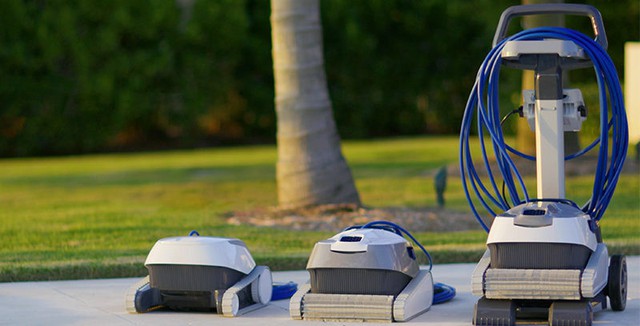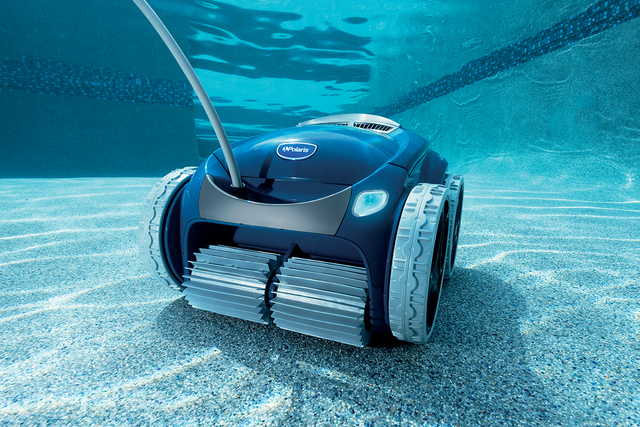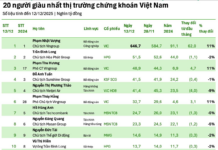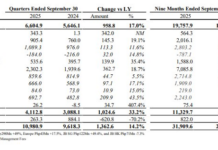Dominating a New Arena
China is taking on the world in robotic vacuum cleaners, and gradually making a name for itself in the electric vehicle industry. Now, it is setting its sights on another unexpected market: robotic pool cleaners.
Chinese manufacturers of pool-cleaning robots are riding a wave of tech start-ups that produce smart products, in a market that is still relatively untapped.
According to the Pool & Hot Tub Alliance, a leading trade association in the US, there are an estimated 30 million residential pools worldwide – 90% of which are in the US and Europe – and this market is growing by about 5% each year.

Over half of the top 100 best-selling automatic pool cleaners on Amazon in the US in recent years were made in China, according to online market research tool SellerSprite.
Chinese start-ups in this field have raised multiple rounds of funding in the past few years. One of them, Beatbot Tech, founded two years ago, has raised nearly CNY500 million ($69.14 million), capturing 85% of the premium market for pool-cleaning robots priced above $1,400, according to 36Kr, a Chinese start-up news and data website.
This has encouraged other start-ups to enter the market.
“Our strategy is to apply multiple smart technologies from other industries to automatic pool cleaners, making our products far superior to Western brands that have dominated the market,” said Mark Li, co-founder of Hippobot Technology, which will launch its first pool-cleaning robot in November.
The company added that it is following the formula that has worked for China’s electric vehicle industry.
Li said its first product, which will be priced at $400, will have features not found in Western brands, including longer battery life, environmental sensors, mapping and navigation, while production costs are only CNY600 ($83) thanks to China’s well-established energy and automation supply chains.
When mass production starts next year, the selling price will be even lower, Li said.

Big Opportunities, Big Challenges
Hippobot has already completed R&D for its next-generation model, Li said, comparing this development speed to Western competitors, which may only launch a new model every two or three years.
Aside from automatic pool-cleaning robots, Chinese private tech start-ups are also accelerating the application of smart technologies in other areas such as lawn mowers, drones and agricultural machinery, while capturing market share through rapid reproduction.
“If Chinese companies continue to expand their global market share in the field of pool-cleaning robots, this will also drive the R&D of upstream supply chain components such as ultrasonic sensors, and could provide capital for other smart manufacturing sectors in China,” Li said.
“It’s similar to how some successful robot-making companies ventured into electric vehicles after they found success.”
However, these ambitious start-ups face similar risks to Chinese electric vehicle makers, as foreign markets threaten to erect higher tariff barriers.
Although currently exempt from tariffs, Li remains vigilant. He said that if they were imposed, he would have to raise prices and, in the long run, shift some production to Southeast Asian countries, while acknowledging that neither option is easy for a start-up.
Another issue is the difficulty Chinese start-ups face in securing funding in Western markets.
“If an excellent Chinese company can bring ten or a hundred times the profit, why not invest in it?” Li asked.
China Tightens Control on Exports of a Vital Metal: Dominating 80% of the Market Share, Vietnam Also Possesses the Third-Largest Reserve Globally
China is tightening its grip on exports of a range of goods, including tungsten, magnesium, and graphite, which are commonly used in technology supply chains. The move is part of a broader strategy by the Chinese government to exert greater control over critical resources and could have significant implications for global trade and technology industries.
“VinFast Secures Backing from Vingroup and Chairman Pham Nhat Vuong to Fortify its War Chest and Accelerate its Ascent.”
On November 12, 2024, Vingroup and Mr. Pham Nhat Vuong announced a financial support package for VinFast. As part of this, Vingroup plans to provide VinFast with new loans of up to VND 35,000 billion by the end of 2026. In addition, Mr. Pham Nhat Vuong has committed to personally sponsoring VinFast with VND 50,000 billion. Furthermore, Vingroup will invest in VinFast Vietnam by converting the existing loan of approximately VND 80,000 billion into preferred shares, which will be eligible for dividends.
“Investing in Vietnam: Access to 65 of the World’s Top Markets”
On the morning of November 8th, Prime Minister Pham Minh Chinh attended a Vietnam-China business forum in Chongqing city. The forum was organized by the Ministry of Planning and Investment, the Committee for Management of State Capital at Enterprises, and the Vietnamese Embassy in China, in collaboration with the Chongqing municipal government.










































